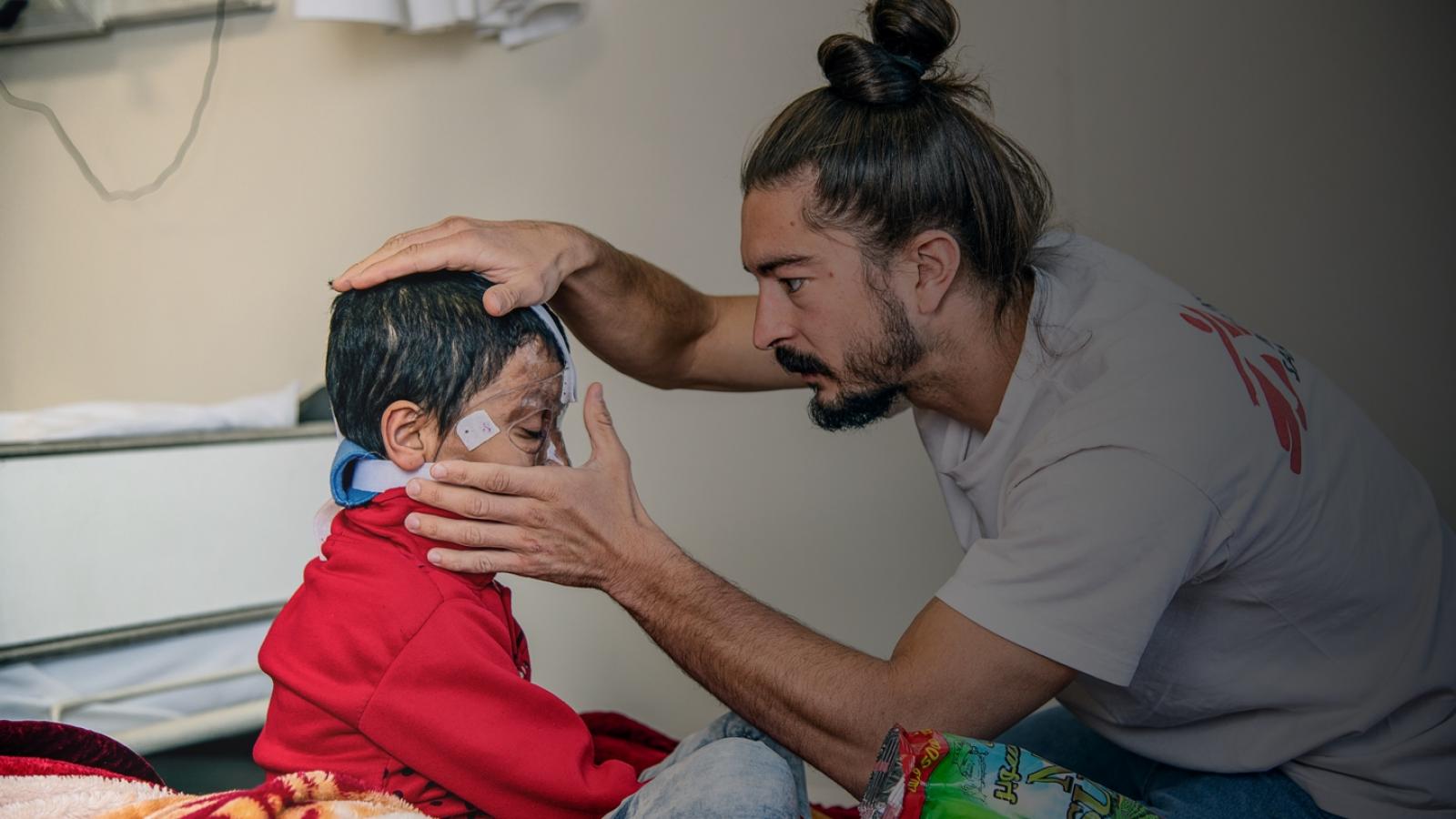MSF RECONSTRUCTIVE SURGERY PROGRAMME
HEALING WAR WOUNDS IN THE MIDDLE EAST

ABOUT THE RSP
- The Reconstructive Surgery Program (RSP) in Amman was established in 2006 to treat people injured in war and unrest. With a high level of surgical expertise, extensive facilities, and a holistic approach to care, the hospital provides a base for MSF to treat patients with complicated injuries - primarily from Iraq, Syria, Yemen, and Palestine - who could not be treated in their own countries. The program was initiated after victims of war in Iraq were unable to access the necessary medical attention needed and has continued due to the ongoing conflicts in the region and the lack of appropriate healthcare facilities in war-torn countries.
- The eight-story hospital has 148 beds, an operating theater with two surgery rooms, physiotherapy and psychosocial departments, a microbiology lab, and a new social and recreational space. In addition to orthopedic, maxillofacial, and plastic surgery, the RSP provides psychological healthcare, physiotherapy, and a safe space to recover, for adults and children who have faced far too much violence.
- Three years later, MSF responded to the heavy casualties from the Iraq War by establishing a Reconstructive Surgery Program (RSP) in Amman, Jordan, to treat the seriously war-wounded without access to proper healthcare.
- The RSP was originally set up to treat war-wounded Iraqis. However, as violence spread across the region, with the 2008 Gaza War, and the Arab Spring in 2011, the program began admitting patients from Syria, Libya, Yemen, and Palestine.
- In 2015, in response to the increasing need for reconstructive surgery, the RSP moved into an independent eight-floor hospital in Amman, to increase the quality of care and to admit higher numbers of patients. This hospital, where the RSP remains today, has 148 beds, an operation theatre with three surgery rooms, as well as a physiotherapy and psychosocial department.
2006
Start of the Iraq Referrals (Orth, Pla, MF). JRC
2007
Starting OM cases
2008
Ghaza Patients First AB Protocol
2010
Yemen Patients First Publication!
2011
Syrian Patients
2013
ABS Publications (Functional Improvement). ABS early discussion Critical Review.
2015
Move to AMW
2016
EMR early discussion
2017
BMRC EMR! Network Physio 3D
2018
PCA! THR Referral BMRC
2019
Pain Management
2021
Regionalization, post COVID Continuity of care
2023
Quality Efforts
Patients by Nationality
Most of our patients stay with us for months at a time. MSF provides transport to and from our patient’s homes as well as accommodation and per diem for them and a guardian if required.

